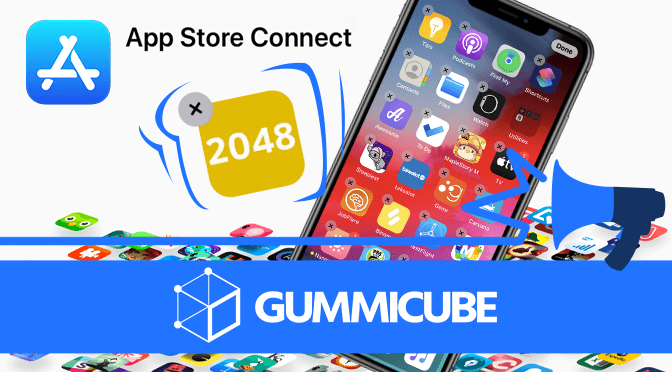
5 Best Practices for Apple Search Ads
Posted on July 3rd, 2024
Are you leveraging Apple Search Ads the right way? Take a look at these recommendations to optimize your paid campaigns and target the right users.

Your app’s install and uninstall rates are critical metrics to understand, and can help shape your development and App Store Optimization strategies. High uninstall rates from App Store Connect should be red flags to developers that something is wrong with a release, such as a retention issue or a bug causing users to delete the app.
But what if the metrics from App Store Connect are where the bugs really are? Apple has recently reported this to be the case- Deletion metrics as of August 2019 have been misreported, and at the time of this writing have been disabled in App Analytics.
Prior to Apple’s recent announcement, developers reported App Store Connect showing an increase in app deletions – up to three times the normal rate in some cases. However, when checking their apps’ crash rates and user activity, there were no coinciding changes in metrics.
The Deletions metric was made available as of June 6, 2019, and the exponential rise in deletions seemed to follow the release of iOS 13. After several weeks of misreported data being live, Apple posted an announcement on App Store Connect explaining the issue:
“App deletions data was reported incorrectly for iOS and tvOS as of August 2019. This data has been removed from the dashboard for reprocessing and will be re-enabled once reprocessing is done.”
Deletions can be caused by bugs and crashes, but may also mean that the app isn’t reaching the right users. If bugs or crashes aren’t the problem, then it could be the audience a developer is able to convert does not stick around long term.
Up until the metric was removed, App Store Connect could show developers which traffic sources were contributing to deletions. Using this data, developers could assess if the issue was coming from a specific channel, and investigate further. For example: If an issue is coming from paid sources, those campaigns should be reassessed; if the issue is from search, keyword rankings should be analyzed and a strategy to restructure metadata and/or creatives should be executed.
Apple states that the data “will be re-enabled once reprocessing is done,” yet has not given a timeframe for when that will be. Recent instances of atypical activity may indicate the issue is being actively worked on, including an announcement of scheduled maintenance on October 20th and several days where no metrics in App Analytics were reported past October 31st, which was resolved on November 7th.
While they have not officially made a statement, it’s possible Apple is working on more than just the Deletions metric in App Analytics. There have also been reports from developers that other metrics, including “Impressions,” “Sessions” and “Conversion Rate” are showing unusual trends that coincide with the releases of iOS 13 on September 19th and iOS 13.1 on September 24th - particularly when filtered by traffic source and set to show only iOS 13 or 13.1. When these filters are applied, some developers are reporting an over 100% Impression to App Unit conversion ratio on some channels. While this would be a great conversion rate to have, it’s simply not possible.
App Analytics is one of the important pieces needed to understand an app’s App Store Optimization performance. As of now, there are bugs in this area of the App Store Connect platform being addressed, which need to be taken into consideration. Gummicube will continue to monitor the App Analytics page and report new announcements and developments as they occur.
Want more information regarding App Store Optimization? Contact Gummicube and we’ll help get your strategy started.

Are you leveraging Apple Search Ads the right way? Take a look at these recommendations to optimize your paid campaigns and target the right users.

Ghostly happenings are among us... and in your app listing too? If you aren't leveraging the power of app seasonality to make relevant tweaks to your store listing you're leaving precious engagement and conversions on the table.

Developers on the iOS App Store should plan in advance of the upcoming Holiday Schedule to allow enough time for apps to get approved during the busy holidays.